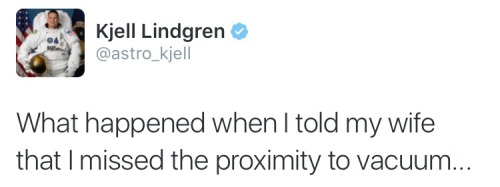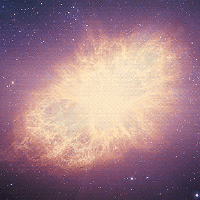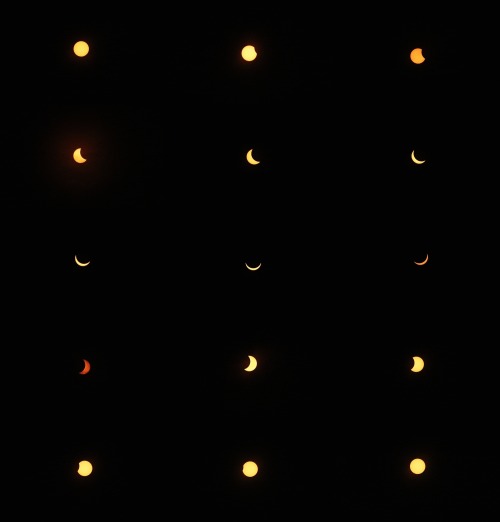Hubble’s Panorama Of The Carina Nebula, Some 7500 Light Years Away From Earth, And About Fifty Light






hubble’s panorama of the carina nebula, some 7500 light years away from earth, and about fifty light years in length here. stars old and new illuminate clouds of cosmic dust and gas, like the clumping hydrogen from which they were born.
the top star seen at the bisection of the first two panels, part of the eta carinae binary star system (most stars are in binary systems), is estimated to be more than a hundred times the mass of the sun - large enough to go supernoava in about a million years.
it also produces four million times as much light as the sun, and was once the second brightest star in the night sky. but surrounding dust and gas has dimmed our view of the star, though it’s still visible in the night sky to all but those in the most light polluted cities.
the fifth panel shows ‘the mystic mountain,’ where nascent stars in the dust cloud are spewing hot ionized gas and dust at 850,000 miles an hour. eventually, the ultraviolet radiation from these stars will blow away the dust, leaving visible the stars, like the cluster seen at the top of the panel, which were formed only half a million years ago.
More Posts from Intergalacticnerd and Others

Excitement over tiny tiny ripples.
And so, gravitational wave astronomy is born. We live in exciting times!


This is Kjell Lindgren. He’s a NASA astronaut who just got back from 5 months on the International Space Station. There are two reasons why this picture is hilarious:
His wife is flawless and makes bad space puns to make him do household chores.
I have that shirt. Thousands of people have that shirt. That shirt is available at Target. Which means actual astronaut Kjell Lindgren, with his wardrobe already full of NASA-issued and logo-emblazoned clothes, was at Target, saw a NASA shirt, and was like, “Yes, I am buying this because this is what I want to spend my actual astronaut salary on.”
tl;dr NASA employs a bunch of fucking nerds
why am i sad
I don’t have any answer to this but I hope you feel better :’( But here is a great example of astronomy and how awesome humanity can be









Great Nebula of our Galaxy
A Nebula is an interstellar cloud of dust, hydrogen, helium and other ionized gases located within our cosmos. Long ago Nebula was used as a term for any diffuse astronomical object, including galaxies beyond the Milky Way. As our knowledge of the universe expanded, so did our knowledge of Nebulae.
Credit: NASA/ESA/Image sources
The Shakespearean Moons of Uranus
This weekend marks the 400th anniversary of Shakespeare’s death, and we’re highlighting the moons of Uranus; some of which are named after characters from his works.

While most of the moons orbiting other planets take their names from Greek mythology, Uranus’ moons are unique in bing named for Shakespearean characters, along with a couple of them being named for characters from the works of Alexander Pope.

Using the Hubble Space Telescope and improved ground-based telescopes, astronomers have discovered a total of 27 known moons around Uranus.
Here’s a sampling of some of the unique aspects of the moons:
Miranda

Shakespearean work: The Tempest
Miranda, the innermost and smallest of the five major satellites, has a surface unlike any other moon that’s been seen. It has a giant fault canyon as much as 12 times as deep as the Grand Canyon, terraced layers and surfaces that appear very old, and others that look much younger.
Ariel

Shakespearean work: The Tempest
Ariel has the brightest and possibly the youngest surface among all the moons of Uranus. It has a few large craters and many small ones, indicating that fairly recent low-impact collisions wiped out the large craters that would have been left by much earlier, bigger strikes. Intersecting valleys pitted with craters scars its surface.
Oberon

Shakespearean work: A Midsummer Night’s Dream
Oberon, the outermost of the five major moons, is old, heavily cratered and shows little signs of internal activity. Unidentified dark material appears on the floors of many of its craters.
Cordelia and Ophelia

Shakespearean works: Cordelia - King Lear; Ophelia - Hamlet
Cordelia and Ophelia are shepherd moons that keep Uranus’ thin, outermost “epsilon” ring well defined.
Between them and miranda is a swarm of eight small satellites unlike any other system of planetary moons. This region is so crowded that astronomers don’t yet understand how the little moons have managed to avoid crashing into each other. They may be shepherds for the planet’s 10 narrow rings, and scientists think there must be still more moons, interior to any known, to confine the edges of the inner rings.
Want to learn more about all of Uranus’s moons? Visit: http://solarsystem.nasa.gov/planets/uranus/moons
Check out THIS blog from our Chief Scientist Ellen Stofan, where she reflects on the life and legacy of William Shakespeare on the 400th anniversary of his death on April 23, 1616.
Make sure to follow us on Tumblr for your regular dose of space: http://nasa.tumblr.com


February 7, 1984 – Astronauts Bruce McCandless II and Robert L. Stewart make the first untethered spacewalk using the Manned Maneuvering Unit (MMU) during mission STS-41B of the Space Shuttle Challenger.
(NASA)

Astron'art ^_^

NASA just released the most detailed photo of space ever taken
The picture of the Andromeda galaxy, the nearest spiral galaxy to our own, is comprised of a mind-boggling 1.5 billion pixels and was snapped from 2.5 million light years away by the powerful Hubble Space Telescope.
See it in all its glory

-
 the-healing-mindset liked this · 1 year ago
the-healing-mindset liked this · 1 year ago -
 terrific-togekiss reblogged this · 1 year ago
terrific-togekiss reblogged this · 1 year ago -
 terrific-togekiss liked this · 1 year ago
terrific-togekiss liked this · 1 year ago -
 cassettestoredayde liked this · 1 year ago
cassettestoredayde liked this · 1 year ago -
 esvoritter liked this · 1 year ago
esvoritter liked this · 1 year ago -
 erinflight reblogged this · 2 years ago
erinflight reblogged this · 2 years ago -
 notscottishbutmajorfold liked this · 2 years ago
notscottishbutmajorfold liked this · 2 years ago -
 heocsy liked this · 2 years ago
heocsy liked this · 2 years ago -
 pixmallow reblogged this · 3 years ago
pixmallow reblogged this · 3 years ago -
 pixmallow liked this · 3 years ago
pixmallow liked this · 3 years ago -
 sparkling-september reblogged this · 3 years ago
sparkling-september reblogged this · 3 years ago -
 vintagedreamweaver liked this · 3 years ago
vintagedreamweaver liked this · 3 years ago -
 bayercom reblogged this · 3 years ago
bayercom reblogged this · 3 years ago -
 non-ti-scordar-dime liked this · 3 years ago
non-ti-scordar-dime liked this · 3 years ago -
 transparentdelusionobservation liked this · 3 years ago
transparentdelusionobservation liked this · 3 years ago -
 f0undintranslati0n liked this · 3 years ago
f0undintranslati0n liked this · 3 years ago -
 snavian reblogged this · 3 years ago
snavian reblogged this · 3 years ago -
 valkyrier reblogged this · 3 years ago
valkyrier reblogged this · 3 years ago -
 kwdsaturn reblogged this · 3 years ago
kwdsaturn reblogged this · 3 years ago -
 friedtacoanchor liked this · 3 years ago
friedtacoanchor liked this · 3 years ago -
 enemies-to-idiots-to-lovers reblogged this · 3 years ago
enemies-to-idiots-to-lovers reblogged this · 3 years ago -
 enemies-to-idiots-to-lovers liked this · 3 years ago
enemies-to-idiots-to-lovers liked this · 3 years ago
"Astronomy compels the soul to look upwards and leads us from this world to another." - Plato
147 posts
